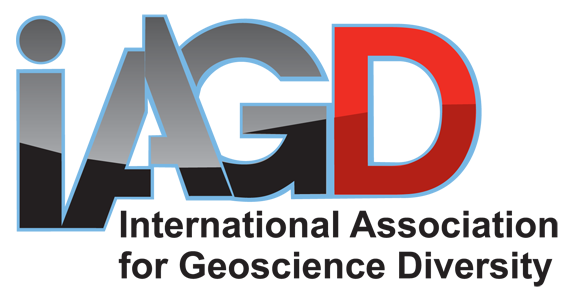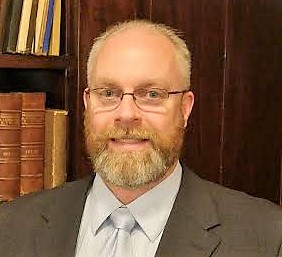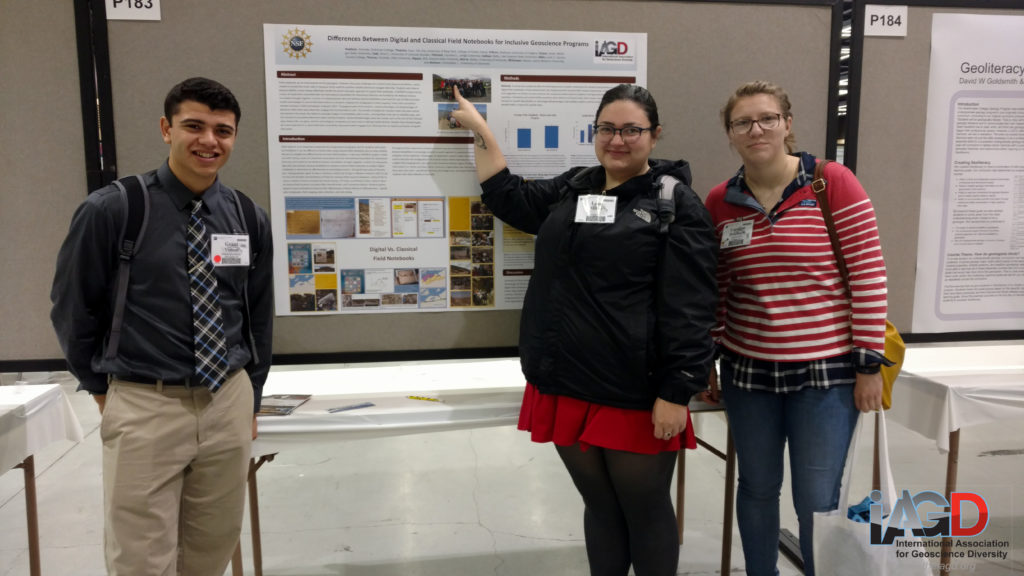4. Recent Meeting Notables
»Confronting Barriers to Inclusion – Opening the Gate to Accessible Fieldwork
Alison Stokes, Executive Counselor
On Friday 26th June 2015 around 40 delegates gathered at the Geological Society of London’s headquarters at Burlington House for a day of presentations and discussions around the key theme of accessible fieldwork. The meeting brought together people from a range of organisations including schools, universities, fieldwork providers, national parks, scientific societies and professional training providers, all of which have a vested interest in making fieldwork inclusive and accessible.
The day featured a great range of talks covering the provision of accessible fieldwork in formal and informal contexts, and across all levels of education from school to professional training. Following an opening introduction from
Edmund Nickless (Geological Society Executive Secretary), IAGD Executive Director, Chris Atchison, delivered a keynote address on challenging traditional models of field-based instruction and incorporating case studies from Mammoth Cave National Park and the accessible field course in Vancouver, British Columbia. This set the tone for the remainder of the day’s presentations which explored challenges and opportunities around the delivery of accessible fieldwork in specific contexts including public outreach, schools, higher education, professional development (specifically for the oil and gas industry), and virtually through online worlds (http://www.see.leeds.ac.uk/virtual_worlds/demo/ ). The talks were both live-streamed and recorded, and available to view online through the Geological Society website; http://tinyurl.com/London2015-AccessibleFieldwork .
Discussion was a critical component of the event, and the final session involved a whole-group discussion which explored further some of the main issues and themes emerging from the day, and which will form the basis for future actions. The most important outcome, however, was to bring together a group of people with an interest in accessible fieldwork, and to use the event as a springboard for future capacity-building and collaborations both nationally within the UK and – hopefully – internationally.
»Earth Educators’ Rendezvous
Wendi J. W. Williams, Executive Counselor
The first ever “Earth Educators’ Rendezvous” recently concluded at the foothills of the Rocky Mountains. The University of Colorado – Boulder was the site of over 300 like-minded educators participating during 13 – 17 July in a packed-program of multi-morning extended workshops, afternoon mini-workshops, and concurrent oral and poster sessions. Evenings included a Fiske Planetarium presentation in anticipation of the close fly-by of Pluto by the NASA New Horizons mission, as well as time to network with familiar and new colleagues. Many of the sessions have materials linked to presentations and additional resources; http://serc.carleton.edu/earth_rendezvous/2015/index.html .
Several IAGD members contributed to the programs directly and/or participated during this week. Charlie Paradis, a graduate student at the University of Tennessee, Knoxville, and others presented “The impact of inclusion: A student’s perspective of participating in a fully accessible geoscience field course.” (Retrieve their media: http://serc.carleton.edu/earth_rendezvous/2015/program_table/abstracts/100687.html )
The 2016 Rendezvous will be at the University of Wisconsin – Madison during 18 – 22 July.
The IAGD Executive Committee has an immediate opening for a
Director of the IAGD Foundation
All interest and inquiries should be submitted to foundation@theiagd.org




